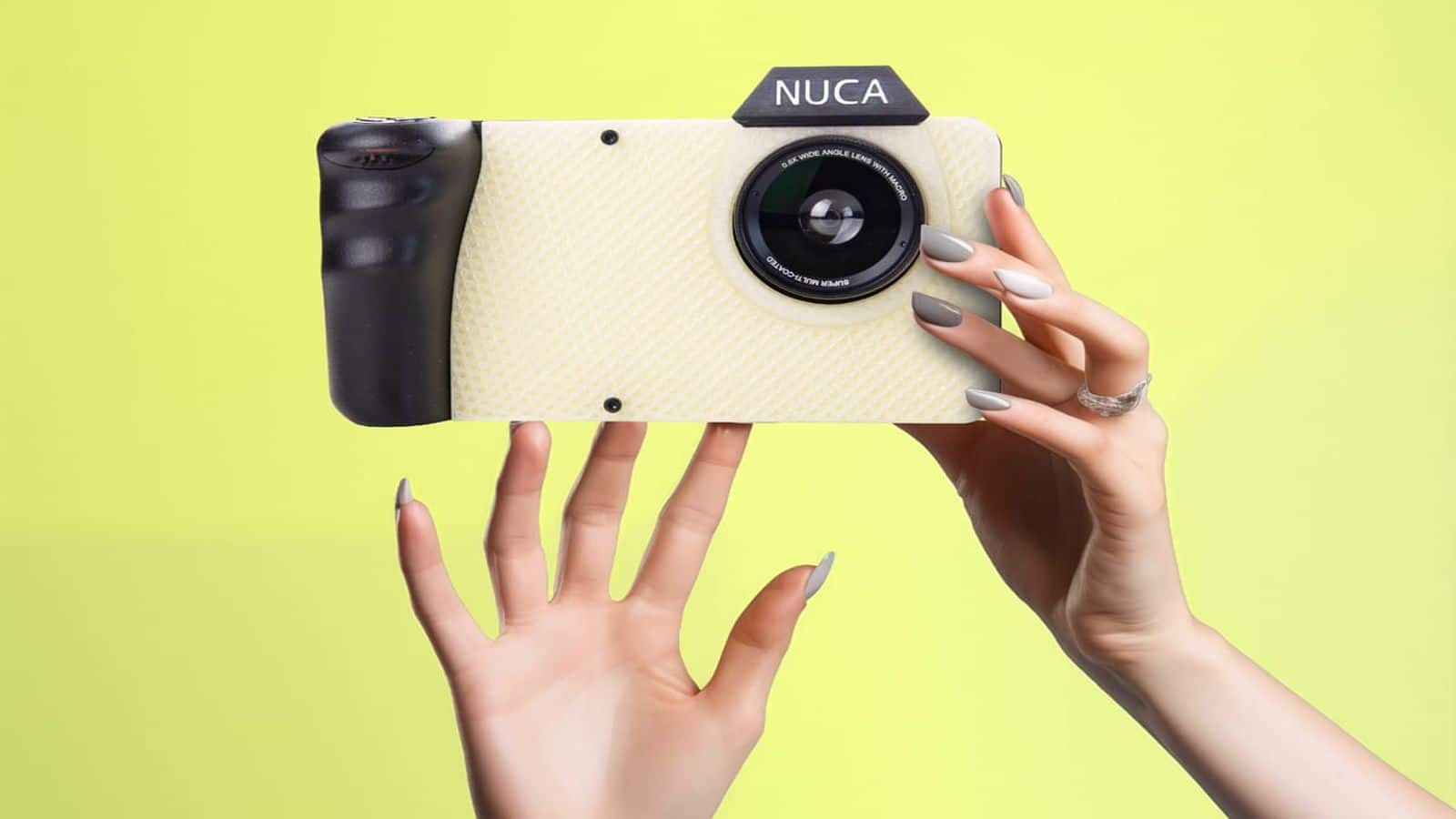
AI camera creates nudes from real pictures, sparking ethical concerns
What's the story
Artists Mathias Vef and Benedikt Gross have created a camera, called NUCA, that uses artificial intelligence to instantly convert regular photographs of its subject into a nude image. The creators describe NUCA as a "speculative design and art project" that "aims to provoke and question the current trajectory of generative AI in reproducing body images." The camera's capabilities are not just theoretical. It effectively demonstrates how easily nude images can be created from any photograph, sparking ethical and privacy concerns.
AI discussion
NUCA aims to stimulate conversation on AI potential
The inventors of NUCA aim to stimulate an important conversation about the potential of AI, focusing on consent, algorithmic fairness, and societal implications of AI-created images. NUCA is a 3D-printed camera fitted with a 37mm wide-angle lens. As per the creators, the camera "will create an estimated natural nude representation of the person being photographed." The input photo is analyzed by a custom classifier on 45 identifiers such as gender, age, ethnicity, expression, hair, glasses, body shape etc.
AI processing
NUCA's image generation process and optimization plans
The collected data from the photographed subject is used to generate a prompt for an AI image generator known as Stable Diffusion text-to-image, which produces the nude image. The entire procedure from capturing the real photograph to producing the AI-generated nude takes approximately 10 seconds. Vef and Gross say they can optimize this process to reduce the time by half.
Public reaction
NUCA to be showcased at Berlin exhibition
NUCA is not designed for commercial sale. Instead, it will be showcased in an exhibition named "Uncanny" at Nuud gallery in Berlin on June 29. The inventors are keen to observe public reactions to their invention, with Vef stating, "We tried to find out basically how people would react to it because we have different reactions ourselves."
Public response
Inventors anticipate mixed reactions to NUCA
Vef anticipates negative responses, particularly from women, stating "The first one I showed it to she didn't know about the other deepfakes stuff that was happening. She was really shocked." However, he also mentioned that some of his friends found it "super fun and super funny" and were eager to experiment with it. Despite these varied reactions, the inventors insist that NUCA is not introducing a new concept but spotlighting an existing problem.